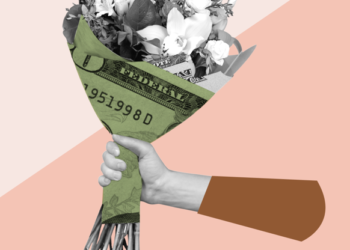You’re not too busy to live your life
Looking back Pre- Covid-19, we all had things lined up, 24 hours never seemed enough in a day for all the things we needed to achieve. Then came the Covid-19 lockdowns around the world that kept all at home (except for essential workers).
Parents began to notice many things they never did before, waking up in the morning and rushing out of the house apparently had its perks! Just having to be with kids all day became overbearing for many parents and caregivers. Then the drama of homeschooling started to have its own effects. Parents all over the world started realizing that there was nowhere to leave their kids. You just had to make it work: swim or sink, as they say. That was a clear choice.
Ha-ha! It soon began to dawn on parents that they were really not too busy but just got caught in the chaos of living in an increasingly fast-paced changing society. The whole fast lifestyle we were trapped in where we hardly had a chance to really know our kids and have time for loved ones slowly collapsed around us.
Soon we realized that there were worse things in life than not going to that big board meeting that was planned months in advance, or not meeting our targets and not going out shopping, or being able to go to the mall to watch a movie or get a haircut. Then suddenly, we all had our aha moment—we could still check up on our moms, dads, friends, sisters, brothers, and actually play with our kids. Many of us started a new hobby, read books, learned a new skill. The list could go on and on. So my hope is that post-Covid, that we should not forget that we could create time and live a well balance life after all!
Your Mental health is everything.
Mental health includes our emotional, psychological, and social well-being. It affects how we think, feel, and act. It also helps determine how we handle stress, relate to others, and make choices. Mental health is important at every stage of life, from childhood to adolescence through adulthood. We’re wired by our emotions which a pay a big role in how we manage our life. How we perceive things and see life are embedded in our ability to handle our emotions.
Depression was a worry for many in the early days of the pandemic especially for those who don’t do regular mental health evaluation with a professional coach or therapist. There were cases ranging from panic attacks to a total breakdown.
Being mentally healthy is as vital as being physically healthy; it helps to build a high level of resistance to other health disorders. The current pandemic took the world by surprise. No one was prepared for the crazy chaotic way we were expected to adapt to
over night. We had to keep away from friends, families even our next-door neighbour. The anxiety of not knowing where we were headed clearly affected many of us mentally. Information overload coupled with conflicting messaging made a bad situation even worse. Psychologists were warning that the rates of depression were skyrocketing and that we had to do everything in our power to maintain our mental heath. There is an end to the pandemic in sight but we should never take for granted the lessons learned during this trying period.
If we don’t take care of Nature, Nature won’t take care of us.
Nature is a gift to humankind, the air we breathe, the land we walk and build on and even the skies and every thing that we can see is made from nature. It’s our responsibility to take care of them.
Humans are increasingly influencing the climate and the earth’s temperature by burning fossil fuels, cutting down rainforests and farming livestock. This practice has added enormous amounts of greenhouse gases to those naturally occurring in the atmosphere, increasing the greenhouse effect and global warming.
Carbon dioxide emitted into the air is the main cause of human-induced climate change. It stays in the atmosphere for a very long time. Other greenhouse gases, such as nitrous oxide, stay in the atmosphere for a long time. Other substances only produce short-term effects.
We could see the dramatic fall in air pollution that accompanied countries going into the lockdown provided a unique natural experiment, enabling scientists to probe some of the long-standing mysteries surrounding cloud formation. In doing so, they have gained a better understanding of the complicated interactions between air pollution, weather and climate.
COVID-19 became the opportunity for the earth to build a clear blue sky and clean the air. It’s as if we have all been sent to our rooms to think about how we can better treat the earth! During the period of lockdowns across the world, the sight of the blue sky created a sense of optimism among the people towards a clean and better environment, the irony is staggering!
Before COVID-19, the world suffered a high level of urban air pollution especially in the form of CO2 (carbon dioxide) SO2 (sulfur dioxide), NO2 (Nitrogen dioxide) and particulate matter. The major sources of this pollution are the transport sector, manufacturing industries, power stations and so on. They are responsible for the increased output of all these pollutants.
It’s clear the we haven’t treated nature as our priority over the years, now we must all lend our voices to the cause and act swiftly so nature can take care of us too—or risk us all becoming extinct.









